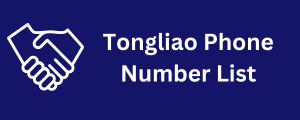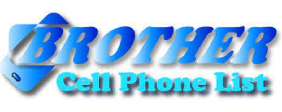Welding the Perfect Weld: A Deep Dive into Welding Materials Databases
For any welder, selecting the right material is as crucial as mastering technique. countless material combinations, navigating the world of welding materials can be overwhelming. Enter the welding materials database – your one-stop shop for informed welding decisions.
What is a Welding Materials Database?
A welding materials database is a comprehensive online resource that houses information on a wide range of materials commonly used in welding applications. These databases provide in-depth details on:
- Material Properties: Chemical composition, mechanical properties (strength, ductility), melting point, and thermal conductivity – all critical factors for successful welding.
- Weldability: Detailed information on how a specific material reacts to different welding processes, including potential challenges and recommended techniques.
- Filler Metals: Recommendations for the optimal filler metals (welding rods or wires) to achieve strong and reliable welds for specific material combinations.
- Preheating and Post-Weld Heat Treatment: Guidelines on preheating temperatures and post-weld heat treatment requirements to optimize weld quality and minimize distortion.
Benefits of Using a Welding Materials Database:
Here’s how a welding materials database can elevate your welding game:
- Enhanced Efficiency: Quickly find the information you need, eliminating the need to sift through countless resources or technical manuals.
- Improved Weld Quality: Access expert recommendations
- Email marketing lists
- on material selection, filler metals, and welding parameters to ensure strong, reliable welds.
- Reduced Errors: Minimize the risk of weld defects by understanding the specific welding characteristics of different materials.
- Material Exploration: Discover new materials and their suitability for your welding projects, expanding your project possibilities.
Popular Welding Materials Databases:
Several reputable welding materials databases cater to different needs. Here are a few notable examples:
- The American Welding Society (AWS) Welding Information Database: A comprehensive resource maintained by the leading welding authority in the US, offering extensive information on a vast array of materials and processes. () may require a subscription for full access.
- MatDat: A materials properties database with a dedicated section for welding materials, providing detailed mechanical and physical property data for various metals and alloys. offers a free tier with limited features.
- The National Institute of Standards and Technology (NIST) Material Measurement Laboratory (MML): A US government resource offering a searchable database containing material properties for diverse materials, including those commonly used in welding.
Choosing the Right Welding Materials Database:
The ideal database depends on your specific needs and budget. Consider the following factors:
- Level of Detail Required: Do you need basic weldability information, or are you seeking in-depth material properties and process parameters?
- Subscription Model: Some databases offer free access with limited features, while others require a subscription for full functionality.
- Project Requirements: Choose a database that caters to the specific materials you frequently work with.
Beyond the Database: Additional Resources
Welding materials databases are powerful tools, but they’re not the only resource at your disposal. Consider these additional resources to complement your welding knowledge:
- Welding Textbooks and Handbooks: Invest in reliable welding resources that delve deeper into welding theory, material science, and best practices.
- Welding Manufacturers’ Websites: Welding material manufacturers often provide detailed information on their products, including specific recommendations for various applications.
- Welding Forums and Communities: Connect with other welders online to exchange knowledge, troubleshoot challenges, and gain valuable insights from experienced professionals.
Conclusion
Welding materials databases provide a wealth of information, empowering welders at all levels to make informed decisions and achieve superior results. By Linkedin Marketing Lead Generation & B2b Sales for Linkedin leveraging these resources alongside other educational tools and practical experience, you can continuously refine your craft and become a true welding master.
Ready to take your welding skills to the next level? Start exploring a welding materials database today!



